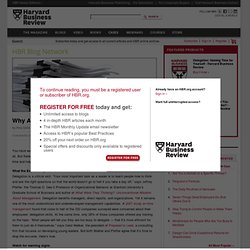

Why I got Fired from Facebook (a $100 Million dollar lesson) 12.8K Flares12.8K Flares × Can I be real with you?

Real real? (A note from Zuck) I’m TIRED of answering this question so I’d rather write it out and just point people to this post. Let me start in reverse. I can tell you every detail of the day I got fired aka “let go” aka “down-sized” aka “shit-canned.” I thought I was going to a routine coffee with my boss and randomly saw Matt Cohler sitting at the table inside (surprising)! I knew something was amiss. Then I proceeded to the Verizon store to use their phone, called my gf (at the time) and drove to the house I shared with 6 other FB guys. Packed up all my stuff in my CRX, smoked a 1/2 pack of cigarettes on the balcony and drove to my friend Johnny’s place. Later that night we had a bbq at this place and everyone was asking me how the job was going…. I kept drinking that night to pass out and pray this was all a bad dream. At that time, here’s the order of what was important in my life: To spell it out.
WTF! 1- Grower. 2- Show-er. Why Less is More in Teams - Mark de Rond. By Mark de Rond | 10:00 AM August 6, 2012 Why is it that American football uses eleven players, Canadian football twelve, and Gaelic fifteen?

Why eleven in European soccer? Why does baseball field nine players, basketball five, volleyball six, water polo seven, and cricket eleven? Simple as these questions are, they are deceptively hard to answer. But whatever the historical reasons, the number of people on a team has significant impact on performance. The earliest known attempt to investigate the relation between team size and productivity dates back about a hundred years to the now famous experiments by French engineer, Maximilien Ringelmann. In a brilliant twist on Ringelmann, Alan Ingham and three colleagues in the 1970s decided to recreate the experiment in the basement of the University of Massachusetts Amherst. Ingham and his colleagues had demonstrated that loss of effort could not be explained by lack of coordination, as Ringelmann originally thought.
How to Destroy Teams and Become Losers. Image source Terrible teams are easy; great teams rare.

Great teams do two things. First, people working together achieve things individuals can’t; they achieve more together. Second, Teams that work – work at working together. Performance: I was a good player on my high school basketball team, not great. Winning: We shared passion to win and we frequently did. Internal competition: Begrudging and belittling the achievements of others destroys teams. Too much competition within teams cripples competitive advantage. Your best brings out my best.Never let their best bring out your worst. Internal competition works when: It's Not The CEO, It's The Leadership Strategy That Matters.
Why Aren't You Delegating? - Amy Gallo - Best Practices. You have way too much to do, you’re buried in work, and it seems there’s no way out from under it all.

But there is: delegation. Yes, yes, you know it’s important to do and you know it will save you time and help others develop new skills. So why aren’t you doing it? What the Experts Say Delegation is a critical skill. “Your most important task as a leader is to teach people how to think and ask the right questions so that the world doesn’t go to hell if you take a day off,” says Jeffrey Pfeffer, the Thomas D.
Watch for warning signs You may not realize that you’re unnecessarily hoarding work. Understand why you’re not delegating There are plenty of reasons why managers don’t delegate. Measure how you’re doing Once you’ve recognized what’s standing in your way, the next logical step is to adjust your behavior. Choose the right people Some managers fear delegation because they’ve been burned in the past.